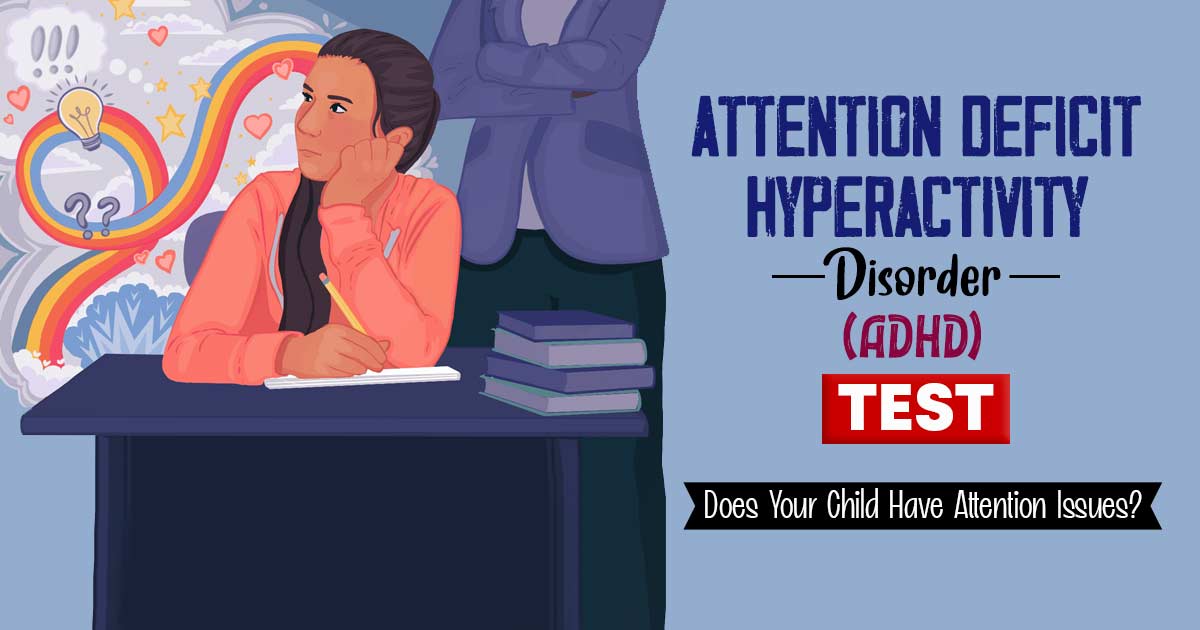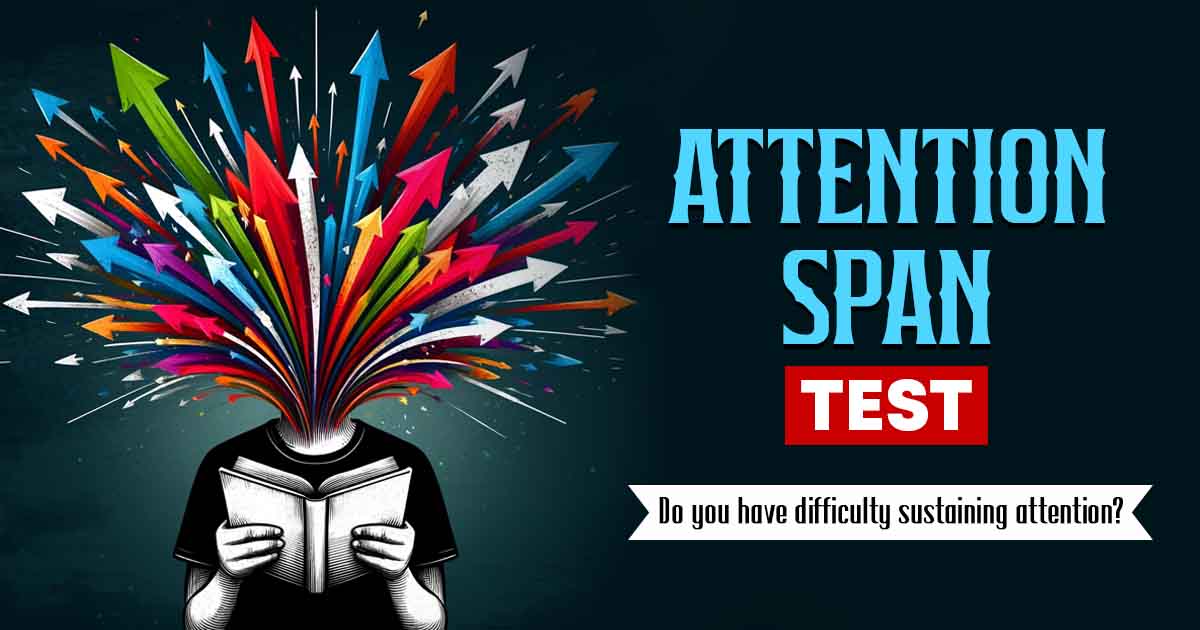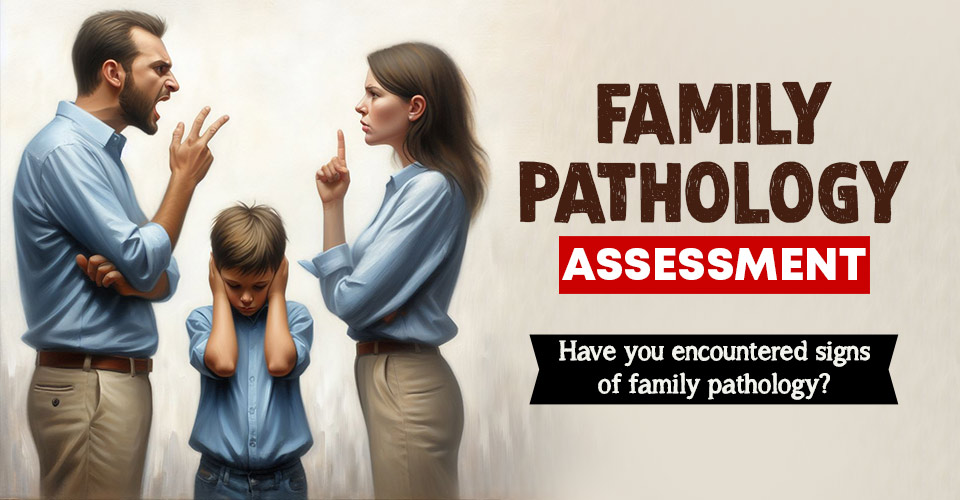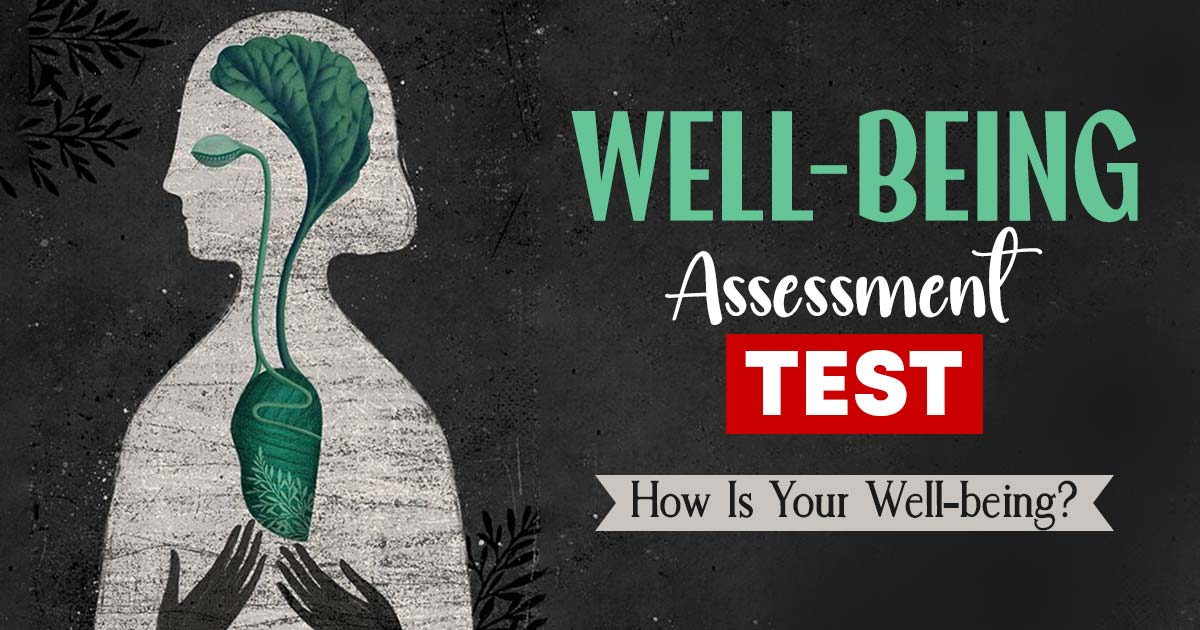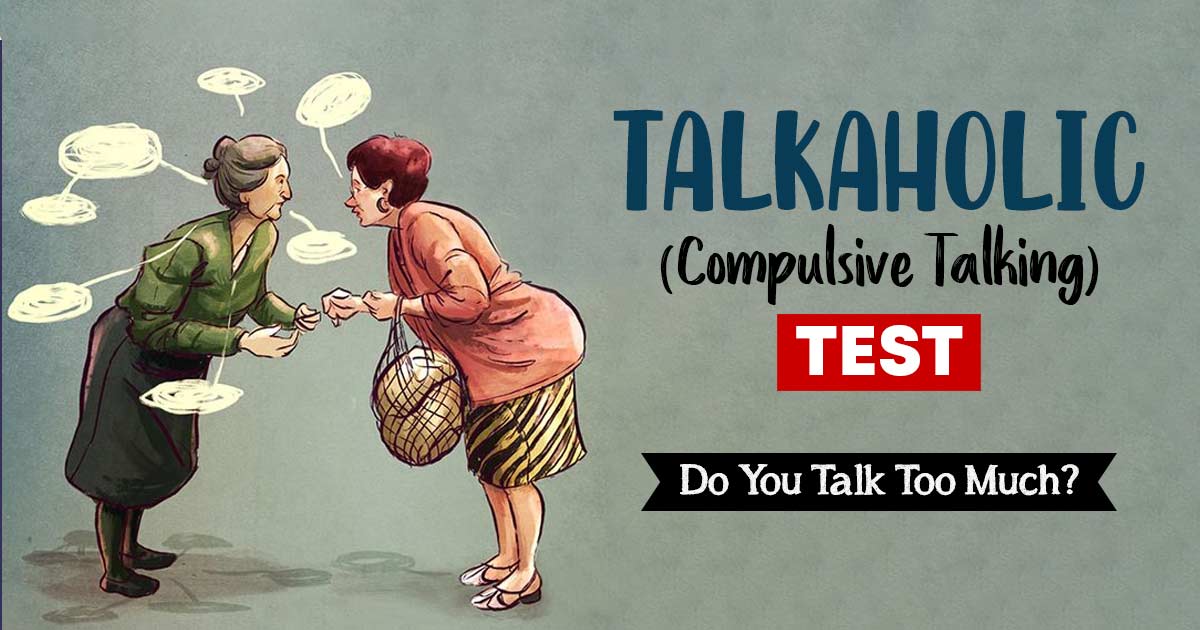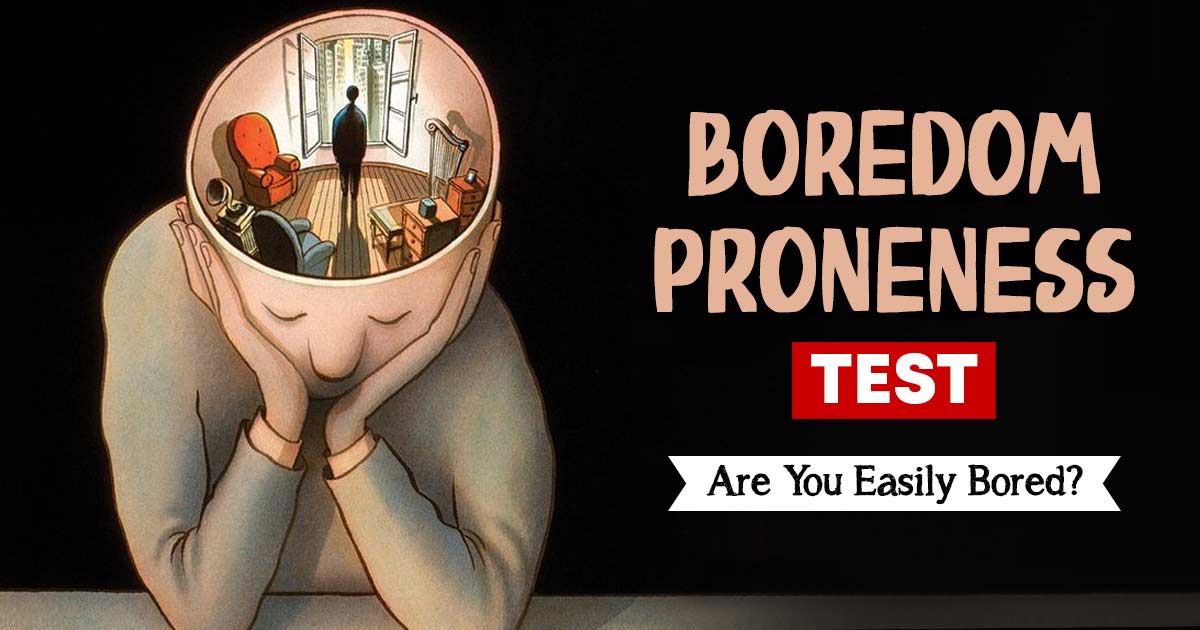Does your child have difficulty paying attention to details and make careless mistakes? Does your child get easily distracted by other things? Is your child unable to follow instructions in school or at home? Or, does your child interrupts someone else’s conversation? Take this ADHD test to know whether your child has the signs of Attention deficit hyperactivity Disorder or not.
What is Attention Deficit Hyperactivity Disorder (ADHD)?
Attention Deficit Hyperactivity Disorder (ADHD) is a neurodevelopmental disorder that begins in childhood but can persist into adulthood. ADHD is characterized by persistent and pervasive symptoms of inattention, hyperactivity, and impulsivity that are not appropriate for an individual’s age and developmental level.
The symptoms of ADHD can have a significant impact on an individual’s academic, social, and occupational functioning. ADHD can also lead to other mental health problems such as anxiety and depression.
A few symptoms of Childhood ADHD include:
- Difficulty paying attention or staying focused on tasks
- Easily distracted by external stimuli
- Frequently forgetful, losing things, or making careless mistakes
- Excessive talking or interrupting others
- Acting impulsively without considering the consequences
Disclaimer: If these symptoms cause the children clinically significant distress or impairment in social, occupational, or other important areas of functioning, and last for at least 6 months or longer, it might be considered a disorder.
Read More About Attention Deficit Hyperactivity Disorder Here
Instructions For Taking ADHD Test Online
Below is a list of statements that commonly relate to children who have symptoms of ADHD. Please read each statement carefully and please indicate the option that best describes your child.
Please note: This online ADHD test is a self-assessment and not a diagnostic test.
Assessment Summary
0 of 15 Questions completed
Questions:
Information
You have already completed the assessment before. Hence you can not start it again.
Assessment is loading…
You must sign in or sign up to start the assessment.
You must first complete the following:
Results
Results
Your time:
Time has elapsed
You have reached 0 of 0 point(s), (0)
Earned Point(s): 0 of 0, (0)
0 Essay(s) Pending (Possible Point(s): 0)
Categories
- Mental Health Assessment 0%
-
Low Sign Of ADHD
The score indicates that your child has a low sign of ADHD. It is evident from the response that your child might fail slightly to pay attention to details and make a few careless mistakes. Further, the present score seems that in a few cases, your child seems to be easily distracted by things and finds it difficult to follow the instruction to a few cases in school or at home. Also, your child’s score reflects that a few times your child might interfere with someone else’s conversation and might few times answer without waiting for the full question to be asked.
Besides this, the response indicates that in a few cases, your child might be unable to sit still for a longer period of time and might find a few difficulties to play cooperatively with others. However, it should be noted that these signs would have a chance to impact your child’s social, occupational, personal, and other areas of functioning in life.
Want to learn more?
There are several strategies that can help manage and control symptoms of Attention deficit hyperactivity disorder (ADHD) in children, such as engaging children in regular exercise, a healthy diet, and good sleep habits, trying to make a schedule from wake-up time to bedtime, giving instructions, speaking to a teacher about any extra support the child may need, and talking to friends or family members, or joining a support group. If you want to know how to manage the signs of ADHD, talk to our professional psychologists.
You can use our Mood Tracker to stay mindful of your mood every day, and identify your innermost thoughts & emotions on a daily basis. It will help you in doing the things you love while limiting activities that might dampen your mood.
-
Moderate Sign Of ADHD
The score indicates that your child has a moderate sign of ADHD. It is evident from the response that your child might somewhat fail to pay attention to details and might make careless mistakes in some cases. Further, your child’s score seems that in some cases, your child might get easily distracted by things and often find it difficult to follow the instruction in school or at home. Also, the present score reflects that sometimes your child might interfere with someone else’s conversation and answer without waiting for the full question to be asked.
Besides this, the response indicates that sometimes your child might be unable to sit still for a longer period of time and might find some difficulties playing with others cooperatively. However, it should be noted that these signs would have a chance to impact some of your child’s social, occupational, personal, and other areas of functioning in life.
Want to learn more?
There are several strategies that can help manage and control symptoms of Attention deficit hyperactivity disorder (ADHD) in children, such as engaging children in regular exercise, a healthy diet, and good sleep habits, trying to make a schedule from wake-up time to bedtime, giving instructions, speaking to a teacher about any extra support the child may need, and talking to friends or family members, or joining a support group. If you want to know how to manage the signs of ADHD, talk to our professional psychologists.
You can use our Mood Tracker to stay mindful of your mood every day, and identify your innermost thoughts & emotions on a daily basis. It will help you in doing the things you love while limiting activities that might dampen your mood.
-
High Sign Of ADHD
The score indicates that your child has a high sign of ADHD. It is evident from the response that in most cases your child seems to fail to pay attention to details and make careless mistakes almost every time. Further, the present score seems that your child gets strongly distracted by things and find it very difficult to follow the instruction in school or at home. Also, it can be seen from the score that in most cases your child seems to interfere with someone else’s conversation and answer without waiting for the full question to be asked.
Besides this, the response indicates that your child seems to have strong difficulties sitting still for a longer period of time and might find it most difficult to play cooperatively with others. However, it should be noted that these signs would have a chance to strongly impact your child’s social, occupational, personal, and other areas of functioning in life.
Want to learn more?
There are several strategies that can help manage and control symptoms of Attention deficit hyperactivity disorder (ADHD) in children, such as engaging children in regular exercise, a healthy diet, and good sleep habits, trying to make a schedule from wake-up time to bedtime, giving instructions, speaking to a teacher about any extra support the child may need, and talking to friends or family members, or joining a support group. If you want to know how to manage the signs of ADHD, talk to our professional psychologists.
You can use our Mood Tracker to stay mindful of your mood every day, and identify your innermost thoughts & emotions on a daily basis. It will help you in doing the things you love while limiting activities that might dampen your mood.
- 1
- 2
- 3
- 4
- 5
- 6
- 7
- 8
- 9
- 10
- 11
- 12
- 13
- 14
- 15
- Current
- Review
- Answered
- Correct
- Incorrect
-
Question 1 of 15
1. Question
My child fails to pay attention to details or makes careless mistakes.
-
Question 2 of 15
2. Question
My child gets distracted by things.
-
Question 3 of 15
3. Question
My child tends to have difficulty focusing on one task or completing it.
-
Question 4 of 15
4. Question
My child is forgetful in daily activities.
-
Question 5 of 15
5. Question
My child does not pay attention to others’ words.
-
Question 6 of 15
6. Question
My child finds it difficult to organize tasks and does things sequentially.
-
Question 7 of 15
7. Question
My child loses important things (like schoolwork, stationery, wallet, etc.).
-
Question 8 of 15
8. Question
My child is unable to follow instructions in school/ at home.
-
Question 9 of 15
9. Question
My child gives an answer without waiting for the full question to be asked.
-
Question 10 of 15
10. Question
My child disrupts or interferes with someone else’s conversation.
-
Question 11 of 15
11. Question
My child is unable to sit still for long periods and run, jump, or climb, even in environments when told not to.
-
Question 12 of 15
12. Question
My child talks fast.
-
Question 13 of 15
13. Question
My child tries to avoid doing things that require attention for a longer period.
-
Question 14 of 15
14. Question
My child has difficulty waiting their turn or playing cooperatively with others.
-
Question 15 of 15
15. Question
My child’s behavior badly interferes in school, home, or other areas of daily functioning.

